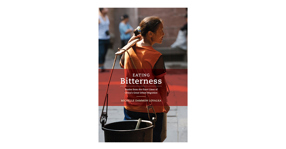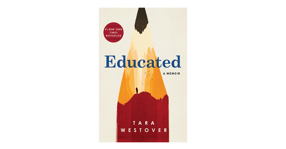We’re pleased to provide you with insights like these from Boston Private. Boston Private is now an SVB company. Together we’re well positioned to offer you the service, understanding, guidance and solutions to help you discover opportunities and build wealth – now and in the future.
There are certain things in life we cannot control, so it’s important to be prepared. Kathleen Kenealy, Director of Financial Planning, reviews the things you can do today to prepare yourself for a crisis.
Transcript
Jen: Hello, welcome to BostonPrivate Perspectives. I'm Jen Dowd, marketing director. This is part of continued commitment to keep our clients informed on current events and perspective on how to consider a potential impact to your wealth and goals. Today, I am joined by Kathleen Kenealy, our director of financial planning and senior wealth advisor here at Boston Private. She's here to lend her expertise to cover a topic she's been spending time with many of our clients talking to on how to prepare for a crisis. Hi, Kathleen.
Kathleen: Hi, Jen. Thanks for having me today.
Jen: Yeah. So, Kathleen, could you start by giving everyone out there a frame of reference for how they can think of the term "crisis."
Kathleen: Sure. So, as we've all witnessed firsthand over the last couple of months, life can throw us some unexpected curveballs that we're not expecting and we're not prepared for. For the world right now, we're all reacting to the outbreak and spread of COVID-19. So, one of the lessons we can learn from this crisis in particular is to express the unexpected and to really plan accordingly.
As a financial planner, I tend to take a really conservative approach in working with my clients. And while I want to help them reach their goals and achieve them, I really always caution that it's prudent to hope for the best but plan for the worst.
While this approach may sound somewhat pessimistic, I think it's in line with the idea that there are certain things in life we cannot control and that cannot always be coming. So, it's important to be prepared for the different surprises and crises that can come our way.
Jen: So, from a financial perspective, what things can we do?
Kathleen: From a financial perspective, there are a number of steps we can take to make sure that we are prepared for potential disasters that might strike, whether it's an unexpected job loss or an unanticipated expense or an unfortunate accident that results in injury or death to ourselves or others, the best place to start is by making sure you have an emergency fund in place. If you don't, start building one.
For most people, this should be equal to keeping roughly 3 to 6 months of living expenses in cash, preferably in interest-bearing savings or a money market account but something that you have immediate access to in case an emergency arises, like an unexpected large expense or a change in your employment circumstances.
I do say that this 3 to 6-month target should be adjusted depending upon your personal circumstances. So, for example, if you have access to a low interest rate home equity line of credit that you can tap into if you need to, perhaps your emergency fund can be on the lower end of the range. But if you're self-employed with cyclical or fluctuating income, you probably want to aim for having a larger emergency fund of maybe 9 to 12 expenses set aside.
I would also recommend periodically reviewing the beneficiary designations on all of your retirement accounts and all of your life insurance policies to make sure that they're up to date and accurate and ask each company to provide you with a copy of what they have on file today. Don't just assume you know what they have on file and don't just assume that the old form that you have in your files is correct. I've had a number of clients, over the years, tell me who they think is beneficiary on their 401k but, when I press them to produce documentation, they're surprised to find out their ex-wife from their previous marriage is still listed as the beneficiary. So, it's really important to actually ask for documentation to confirm.
And along those same lines, make sure to periodically review not just the beneficiaries on your policies but your actual coverage too, especially on your insurance policies. Do you have term policies that are going to expire before your kids get through college? You might want to consider getting additional coverage. You have disability insurance? Did you know that, statistically, young people are more likely to get sick or injured and be unable to work than they are to die prematurely? When was the last time you reviewed your homeowners insurance? If it's been a while and you've done renovations to your home or you required new personal property, you might want to consider reevaluating your coverage.
And what about umbrella liability coverage? If you're asking yourself, "What is that?" you probably don't have any and it's likely that you should. Umbrella insurance is the type of personal liability insurance that covers claims in excess of your regular homeowners or auto policy. So, if someone sues you, umbrella liability is going to protect the assets you've worked so hard to build.
This type of coverage is relatively inexpensive and should definitely be considered by anyone with potential liabilities in their life, like if you have a pool or a trampoline, if there are young drivers in your household, if you employ domestic staff, like housekeepers or nannies, or even if you serve on a board or a charitable organization. All of these things can create liabilities in our life.
Jen: So, Kathleen, I know you've mentioned a lot of things to pay attention to and keep updated. What's the cadence you recommend for updating things like your beneficiary forms or having a re-look at these? I know it's easy to be reactive in a situation like we're in right now or people tend to pay attention to some of this documentation that there's a life event change, what's the cadence you'd recommend to review these different types of documentation and some of the plan coverages you have?
Kathleen: I recommend reviewing everything at least once a year. For the clients that I meet with on a regular basis, I put it on our meeting agenda at least once a year to make sure we review who the beneficiaries are in your retirement accounts, who the beneficiaries are on your insurance policies. I'm doing a number of different insurance reviews right now for clients that are stuck at home and now have time to tackle some of these items. So, at least once a year but I would say more frequently if there's like a big change in your personal circumstances or your life that might warrant reviewing these things sooner than you might otherwise.
Jen: Yeah, it's a good point, that right now is a good time, if you have some downtime, feeling stuck at home...I know you've created a checklist for clients that's on our website. So, that's a great point. Right now we're dealing with a global health crisis, is there anything people should consider to prepare for unexpected health issues?
Kathleen: Yes, definitely. So, as we're all seeing right now, good health is a precious thing not to be taken for granted. But, unfortunately, none of us are immortal or immune to all the different things that can make us sick. So, if you do get sick, are you prepared? Not a lot of people know that, according to the Council for Disability Awareness, just over 2 in 4 of today's 20-year-olds will become disabled before they retire. And surprisingly, accidents are not usually the culprit, it's things like back injuries, cancer, heart disease, and other illnesses that cause the majority of long-term absences from work. So, it's important to think about and prepare for the possibility that something might happen to you.
Earlier I mentioned disability insurance but I think it's worth mentioning again. If you're unable to work due to illness or injury or pregnancy, disability insurance will replace part of your lost income for a specific period of time, which can really help mitigate what otherwise could be a potentially financially devastating event. And if something does happen to you, do you have the legal documents in place? Do you have a will? Do you have a healthcare proxy? Do you have a durable power of attorney? If you do get sick and are unable to make your own healthcare decisions, the healthcare agent you name in your healthcare proxy will be the one making those decisions for you. So, have you had a conversation with that person regarding what types of decisions you want them to make? The attorney in fact that you name in your durable power of attorney is going to be able to execute financial transactions on your behalf, but do they know how to pay your bills? Do they know how to contact your banker or financial advisor?
So, if you do unexpectedly have to go to the emergency room or have a severe medical event that happens unexpectedly, do your immediate family members have a list of all your doctor's contact information? Do they know what medications and prescriptions you're taking? Do they know what your allergies are? I suggest keeping an up-to-date summary of your medical information and your insurance information and your emergency contacts in a place that's easy to find, like on your refrigerator, just in case something happens somebody can grab it and take it with them quite easily.
Jen: And, in addition to yourself, I know that this is a topic that is really important for parents who may have children becoming adults, especially if they're planning to leave the home or live outside of your home, say, going to college...well, al of that might be really uncertain right now, these are also really important documents that parents should work with their children that are about to become adults. Right? To get all that in place before they leave the home...
Kathleen: Yes, most definitely. Once your kid turns age 18 and they're considered an adult, you, as a parent, don't really have the rights that you once did. So, I've had a number of clients and people, over the years, that I've come in contact with that have learned the hard way that, if they're 19-year-old who's off at college gets sick, they've learned the hard way that doctors won’t talk to them and release their personal medical information. So, it is really important if you want to be included in those discussions and you want to have access to information due to privacy laws, you want to make sure your children who are no longer considered minors have some of these documents in place to ensure that open communication and transparency is there and available when you need it.
Jen: Yeah. Another good thing to add to the checklist. So, I know, at Boston Private, we've created a workbook that can really help manage all of this information, it's called our Vital Inventory Manager. So, I'm sure you use that tool with a lot of clients, and I think that it's something great that you can sit down and work through with your advisor and it's also really important to you include all of the important personal information that someone may need in the event of a crisis and it's downloadable on our website. And you can also reach out to any of your advisors at Boston Private for it, but I think it's also a great tool to sit down with your advisor, if you have any questions, and then also work with them to maybe keep that in a secure place so that someone knows where all this vital information is kept.
Kathleen: Yeah, that's a great point and a great idea.
Jen: Yeah. So, any other tips to share with the folks that are listening in today?
Kathleen: Yeah, I do actually have a few other tips. But before I share those, I'm going to take off my financial planner hat and put on my volunteer hat. So, some people know that I've been volunteering with the Red Cross of Massachusetts for the last 5.5 years as both a member and past president of the Boston area's local Young Professionals Chapter. And the Red Cross mission is really to prevent and alleviate human suffering in the face of emergencies. And through my volunteer work with them, I've learned a lot about the steps we can all take to prepare for the unexpected to ensure that we can get through an emergency safely and comfortably.
So, I want to share some of those things that I've learned. The first step is really to make a survival kit so that you are equipped with the supplies you might need in the event of an emergency or a disaster. Your kit should include things like water, non-perishable food, flashlights, a battery-powered radio, extra batteries, and a first-aid kit. You should also have an extra supply of any medications on hand, family emergency contact information, as well as some extra cash. So, you want to make sure you take into consideration the needs of all of your family members.
Make sure to pack any extra medical supplies you might need or baby supplies or pet supplies. If you have to evacuate in an emergency, make sure the most important items are packed in an easy to carry kit. This is really important because I think, as we've seen over the last couple of months, as the shelter-in-place orders came through, a lot of people went out and started stocking up on a lot of these essential items. There are certain things in life we should all keep on hand in the event of an emergency.
But then the second step, once you prepare your survival kit, is to make sure that you've got a plan with your family or your household. Discuss how you would respond to different types of emergencies, whether it's a storm or a hurricane or a home fire or a flood, you need to identify responsibilities for each member of your household and then take time to practice your plan.
So, if you had to grab your emergency kit and then evacuate your entire household, including kids and people with mobility issues and your pets in the event of a home fire, would you be able to do it in 2 minutes or less? Because that's really the time you have to escape your home in case of fire.
Think through other possibilities. What would you do in case you were separated from your other family members while evacuating? Do you have a designated meeting place? If you can't return to your home right away, do you have everything you might need for the next week? If you have a pet, do you know which hotels are pet-friendly in case you don't have another place to stay?
Lastly, and I think this is really important, it's just to make sure to stay informed. Right? So, everybody should know what types of disasters or emergencies are likely to occur in their area and make sure you know how to protect yourself if one occurs. So, for example, here, in New England, one of the most common things that we see are hurricanes. So, it's important to have an emergency kit on hand and create an evacuation plan for your household.
We're also no strangers to the harsh winter storms. So, you may also want to keep an emergency kit in your vehicle in case you are caught in a storm on the road. But those people that are living in California, for example, should know what to do in case of an earthquake or should be prepared to evacuate in case of wildfire. It's also really good to make sure one person in your household is trained in first aid and CPR.
And last but not least, don't forget to test your smoke alarms. And just keep in mind that the best time to make a plan and prepare for an emergency or a disaster is really before one happens, not while it is happening to you.
Jen: All right. We're lucky to have your expertise as a volunteer, in addition to your exercise in financial planning. Thanks, Kathleen.
Kathleen: You're welcome. Thanks, Jen, for having me.
Jen: Yeah. So, well, there's always uncertainty at play, I want to encourage all of our clients listening today to reach out to your Boston Private team with any questions, concerns you may have. Providing guidance and support to you, as your trusted advisor, is our mission. You can also read the latest perspective on boston private.com. We mentioned the Vital Inventory Manager tool. And then Kathleen also has a checklist of some of the topics she mentioned today to run through if you have some downtime and ways to kind of stay ahead of this process and planning. So, if you want all this information delivered right to your inbox, I encourage you to sign up for our newsletters on boston private.com. And be sure to subscribe, if you've enjoyed our podcast today, on Apple Podcasts or Spotify, wherever you prefer to listen. So, thank you.














